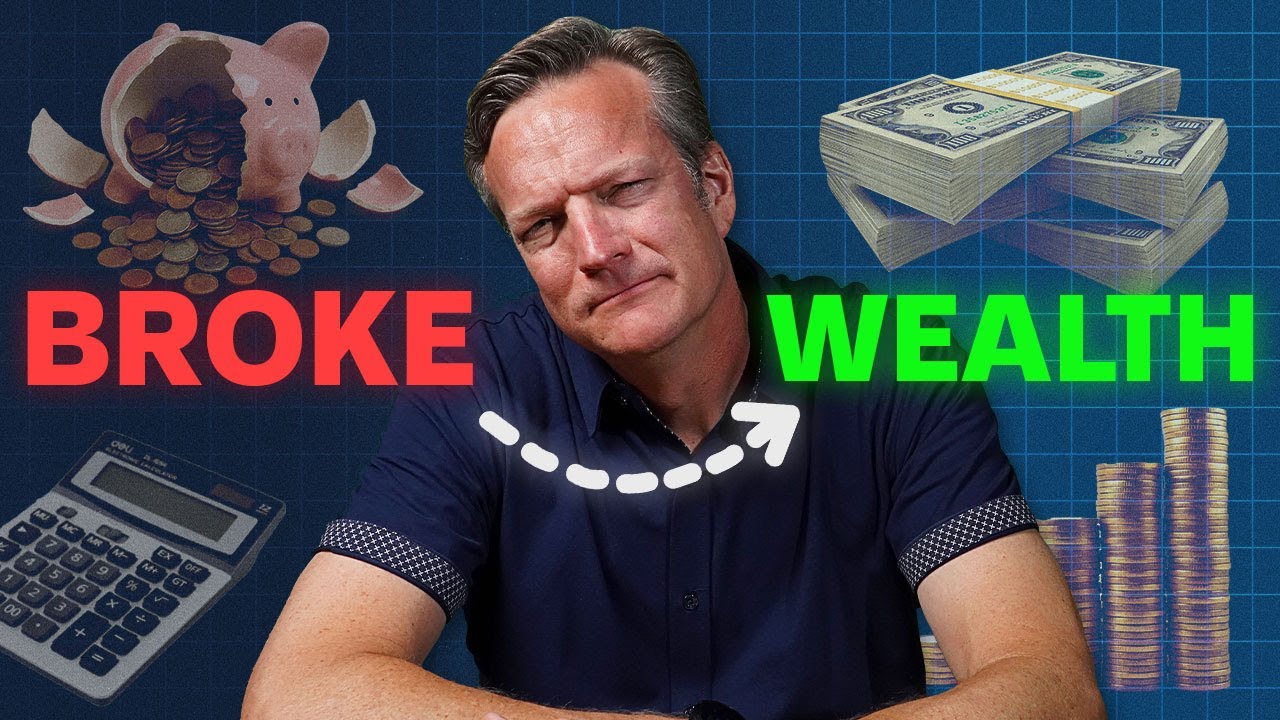All right, uh, this next question, Brian. This is from Andre. Andre asked, "Where in the food chain does rental property investment land if I want to buy a rental property, not necessarily a REIT, but become a landlord? Like, I have a desire to do that. Where do I start saving for the down payment, and how do I know that I'm ready for that?"
Brian, I think this question is so good because I feel like if you go watch TikTok or Instagram, or fill in the blank, they make it seem like the only way to become wealthy is to become a real estate landlord and figure out the real estate game. What do you think? Where does it fit in the food chain? I love this question because, by the way, we get a bad rap. We love real estate, and we even do real estate. I mean, I'm talking about we are eight-figure real estate investors. So for all the folks out there who say these guys don't know anything about real estate, here's the thing I would share.
Is that there is an easy way into real estate if you have the opportunity, and that your kids can go to the school in the area. House hacking is a legit thing. We've seen so many people do it. Basically, house hacking means that you are renting out part of your primary residence. So if you bought a duplex, a triplex, or a quadplex, and you are living in that building, you actually just bought a primary residence that you get to rent out. If you can financially do that, that's not what I think Andre is asking about. Andre is asking about somebody who's not house hacking with their primary residence. He's actually thinking about buying rental real estate. So where does that fit in? Because all over social media, they make it seem like it's so easy.
The thing I have found is that I don't see much truly passive rental real estate. We have tenants who, as you've heard me tell my stories about, change engines in the living room. People who, when they get upset, they leave and rip out the cabinets. And yes, you have a security deposit, but you'll quickly figure out that you hope they just destroy the sheetrock because you can replace sheetrock and carpet pretty easily. When they start ripping out fixtures and cabinets, it gets very expensive.
But I still think that, especially if you know where the real estate market is from a valuation standpoint, you should consider it. But I would tell you to be a little nervous because we've seen, like when I was looking at property in Florida for myself, most of the properties in Florida had appreciated by over 50% in just the last three years. So I start thinking about the cyclical nature of real estate. Do I think I'm going to make a lot more money on this Florida property now, or are we probably going to be sitting flat? Let the historical returns kind of catch up, reversion to the mean. If you're catching that, the purchase price means a lot. That's something to consider.
But from a cash flow perspective, and that's really where the question is, I'm giving you way too much nuance, but I want you to be educated. It is step eight of the financial order of operations. If you go to Money.com/resources, you can download your own version. The reason I say it's a step eight is for prepaid future expenses, or as I affectionately like to call them, "abundance goals." This is when you have enough financial foundation underneath you. You've got your employer match, you've paid off all the high-interest debt, you've actually got cash reserves, and you've taken advantage of the Roth opportunities to get some tax-free growth, your employer's retirement matching, and maxing out retirement contributions. But this is where you get to step eight and say, "Okay, I've got enough jingle in my pocket to make it through whatever ups and downs." Because when we bought our first big commercial real estate property, our landlord at the time, who owned a lot of downtown Franklin, said, "Boys, I'm proud of you. Just make sure you have enough money to make it through the next rough patch because it happens." I mean, it is going to happen. And that's why just promise me, if you're going to go into this fun world of real estate, where you get to take advantage of leverage and the returns that leverage creates for you, you've got to have the pockets to make it through the long, slow winters where people don't pay rent, and yet the bank still wants their money.
Yeah, Brian, you do a great job. You always tell people, if you're going to start a business or you're going to start something like real estate, you ought to put on your 3D glasses. You have these three plans: the dream plan, the down-to-earth plan, and then what you like to call the "doooo" plan, right? I think a lot of people don't really think about that worst-case scenario plan. But I would tell you, Andre, when it comes to real estate, I would ask you this question: What will it cost you if it goes completely wrong? You buy a lemon. If you ever watched the Tom Hanks movie "The Money Pit," let's assume that is your rental property. And let's assume you buy "The Money Pit" at the end of 2007, combining a bunch of factors that make it really, really bad. Will it break you?
If you're in a situation where making that decision will likely break you and stop your financial journey, I would argue that perhaps you are potentially too early in the game. Or maybe you're a young person who says, "Hey, I'm already broke as a joke. I don't have anything going anyway, so it can't break me." I would argue that the amount of time, energy, calories, and dollars that endeavor would take away from you, and if it might take three, four, five, seven, or ten years to manifest, think about how much opportunity cost was lost by not having your dollars working for you, building a solid foundation on a lower-risk, lower-headache, lower-brain-damage path, just by buying low-cost index funds and following the
financial order of operations.
So if this decision could break you, could literally stop you in your tracks and halt your financial journey, I would argue that perhaps you're not in a place where getting into real estate might make sense. Now, if you say, "Okay, if I did this, it might slow me down, it might move me in a direction I didn't necessarily want to be moving, but I can still recover from this, and I'm still going to be able to build towards all of my other goals," then I think that's probably a good indicator that maybe you are ready for it, assuming that you're in Step eight and you've done the things you're supposed to be doing.
Andre, as you get into this, one last word: make sure you do your due diligence and background checks on tenants. Because we saw in the last PMIC, the government did something I've never seen before. They basically allowed you not to be able to evict anybody from the residence. But I've got to tell you, for all you investors out there, be careful. Because this is something that we're not the first ones to come up with. If you go to Paris and other places in Europe, they also have this issue. That's why you see a lot of places that will sit vacant for years because the vetting and due diligence to let people rent from you have gotten to be so hard. So just think about that. That's part of the "doooo" plan. What happens when I have the bank notes due? The mortgage payments have to be made, and nobody can pay rent. That's a legitimate concern, and that's not getting into the moral part of being a landlord and so forth. I'm just telling you, this is part of the numbers, the nuts and bolts, and making sure you can afford it in any scenario. You need this free download:
the Financial Order of Operations. It’s our nine tried-and-true steps that will help you secure your financial future.













